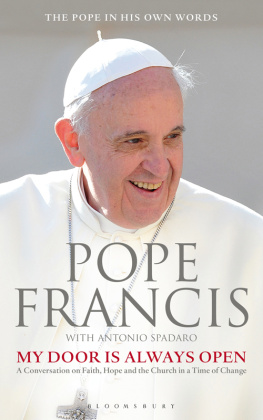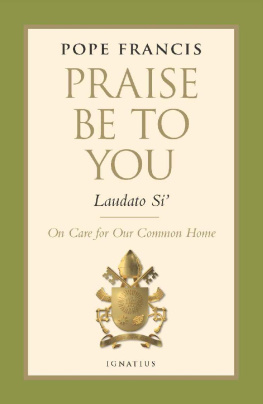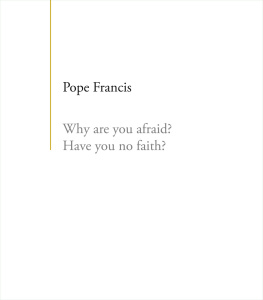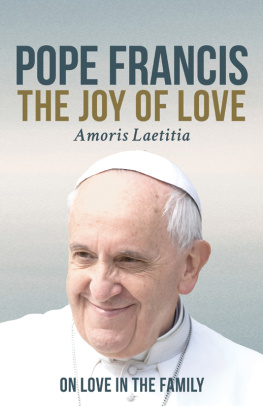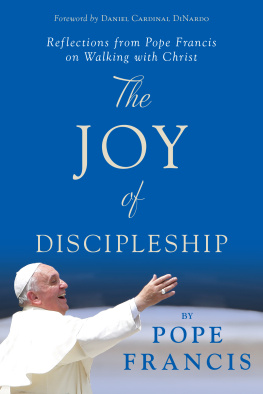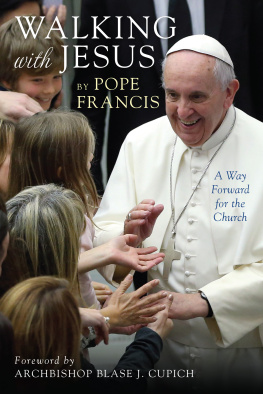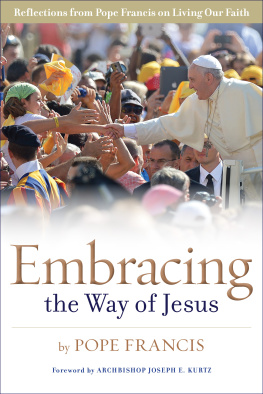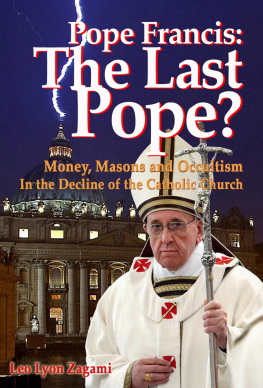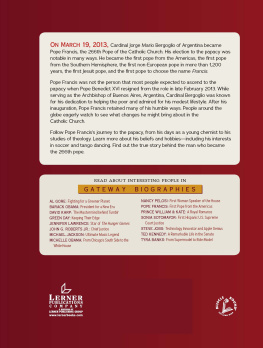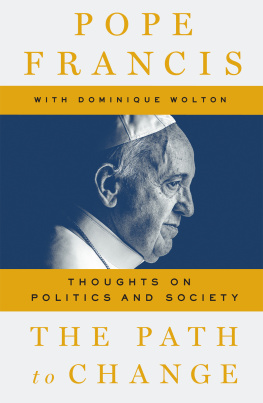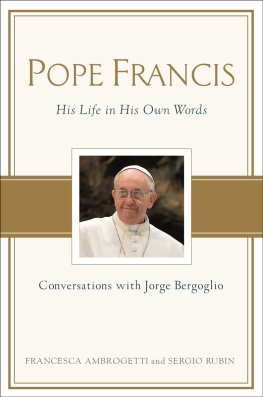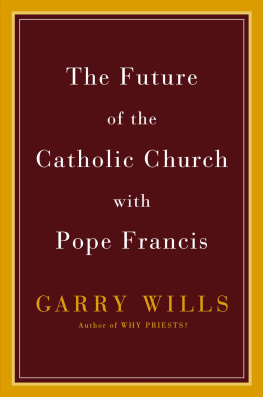Pope Francis - Let Us Dream: The Path to a Better Future
Here you can read online Pope Francis - Let Us Dream: The Path to a Better Future full text of the book (entire story) in english for free. Download pdf and epub, get meaning, cover and reviews about this ebook. year: 2020, publisher: Simon & Schuster, genre: Religion. Description of the work, (preface) as well as reviews are available. Best literature library LitArk.com created for fans of good reading and offers a wide selection of genres:
Romance novel
Science fiction
Adventure
Detective
Science
History
Home and family
Prose
Art
Politics
Computer
Non-fiction
Religion
Business
Children
Humor
Choose a favorite category and find really read worthwhile books. Enjoy immersion in the world of imagination, feel the emotions of the characters or learn something new for yourself, make an fascinating discovery.

- Book:Let Us Dream: The Path to a Better Future
- Author:
- Publisher:Simon & Schuster
- Genre:
- Year:2020
- Rating:5 / 5
- Favourites:Add to favourites
- Your mark:
- 100
- 1
- 2
- 3
- 4
- 5
Let Us Dream: The Path to a Better Future: summary, description and annotation
We offer to read an annotation, description, summary or preface (depends on what the author of the book "Let Us Dream: The Path to a Better Future" wrote himself). If you haven't found the necessary information about the book — write in the comments, we will try to find it.
Let Us Dream: The Path to a Better Future — read online for free the complete book (whole text) full work
Below is the text of the book, divided by pages. System saving the place of the last page read, allows you to conveniently read the book "Let Us Dream: The Path to a Better Future" online for free, without having to search again every time where you left off. Put a bookmark, and you can go to the page where you finished reading at any time.
Font size:
Interval:
Bookmark:
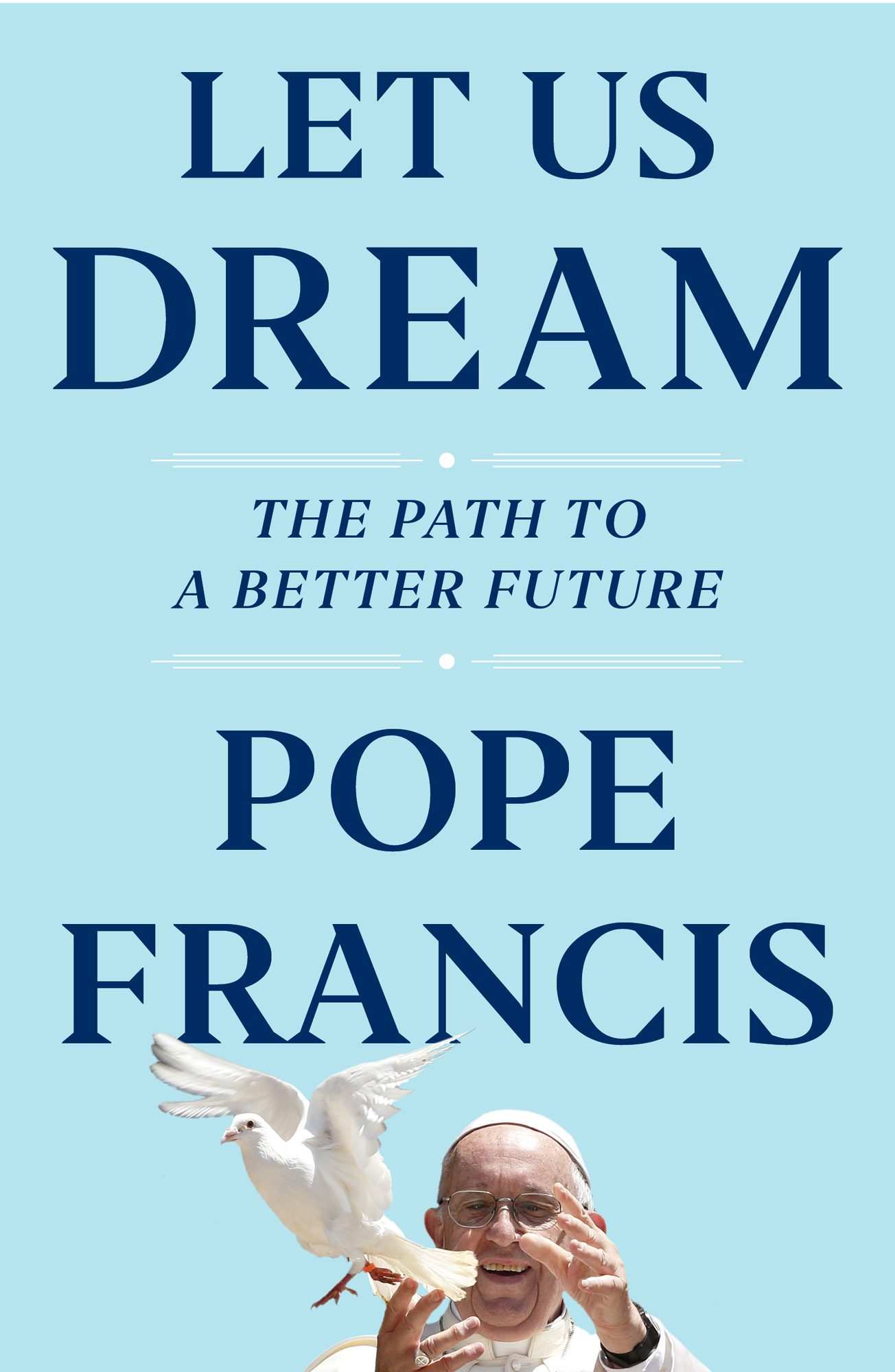


Simon & Schuster
1230 Avenue of the Americas
New York, NY 10020
www.SimonandSchuster.com
Copyright 2020 by Austen Ivereigh
The Scripture quotations contained herein are from the New Revised Standard Version Bible, copyright 1989, Division of Christian Education of the National Council of Churches of Christ in the U.S.A. Used by permission. All rights reserved.
Grateful acknowledgment is made to Alexis Valds to reprint his poem Esperanza.
Copyright 2020 by Alexis Valds
Reprinted with permission of the author.
All rights reserved, including the right to reproduce this book or portions thereof in any form whatsoever. For information, address Simon & Schuster Subsidiary Rights Department, 1230 Avenue of the Americas, New York, NY 10020.
First Simon & Schuster hardcover edition December 2020
SIMON & SCHUSTER and colophon are registered trademarks of Simon & Schuster, Inc.
For information about special discounts for bulk purchases, please contact Simon & Schuster Special Sales at 1-866-506-1949 or .
The Simon & Schuster Speakers Bureau can bring authors to your live event. For more information or to book an event, contact the Simon & Schuster Speakers Bureau at 1-866-248-3049 or visit our website at www.simonspeakers.com.
Interior design by Lewelin Polanco
Jacket design by Jackie Seow
Jacket photograph by Paul Haring/Catholic News Service
Library of Congress Control Number: 2020946848
ISBN 978-1-9821-7186-5
ISBN 978-1-9821-7188-9 (ebook)
I see this time as a reckoning. I think of what Jesus tells Peter in Luke 22:31, that the devil wants him to be sifted like wheat. To enter into crisis is to be sifted. Your categories and ways of thinking get shaken up; your priorities and lifestyles are challenged. You cross a threshold, either by your own choice or by necessity, because there are crises, like the one were going through, that you cant avoid.
The question is whether youre going to come through this crisis and if so, how. The basic rule of a crisis is that you dont come out of it the same. If you get through it, you come out better or worse, but never the same.
We are living a time of trial. The Bible talks of passing through fire to describe such trials, like a kiln testing the potters handiwork (Sirach 27:5). The fact is that we are all tested in life. Its how we grow.
In the trials of life, you reveal your own heart: how solid it is, how merciful, how big or small. Normal times are like formal social situations: you never have to reveal yourself. You smile, you say the right things, and you come through unscathed, without ever having to show who you really are. But when youre in a crisis, its the opposite. You have to choose. And in making your choice you reveal your heart.
Think of what happens in history. When peoples hearts are tested they become aware of what has held them down. They also feel the presence of the Lord, who is faithful, and responds to the cry of His people. The encounter that follows allows a new future to open up.
Think of what weve seen during this Covid-19 crisis. All those martyrs: men and women who have laid down their lives in service to those most in need. Think of the health workers, the doctors and nurses and other caregivers, as well as the chaplains and all who chose to accompany others in their pain. Taking the necessary precautions, they sought to offer others support and consolation. They were witnesses to closeness and tenderness. Many, tragically, died. To honor their witness, and the suffering of so many, we have to build tomorrow by following the paths they have lit for us.
Butand I say this with pain and shamelets also think of the usurers, the payday lenders who have appeared at the doors of desperate people. If they stretch out their hands, it is to offer loans that can never be repaid, and which end up permanently indebting those who accept them. Such lenders speculate with the suffering of others.
In moments of crisis you get both good and bad: people reveal themselves as they are. Some spend themselves in the service of those in need, and some get rich off other peoples need. Some move out to meet othersin new and creative ways, without leaving their houseswhile some retreat behind defensive armor. The state of our hearts is exposed.
Its not just particular individuals who are tested, but entire peoples. Think of governments having to choose in the pandemic. What matters more: to take care of people or keep the financial system going? Do we look after people, or sacrifice them for the sake of the stock market? Do we put the machinery of wealth on hold, knowing people will suffer, yet that way we save lives? In some cases governments have tried to protect the economy first, maybe because they didnt understand the magnitude of the illness, or because they lacked the resources. Those governments have mortgaged their people. In making those choices, their priorities are tested and their values exposed.
In a crisis theres always the temptation to retreat. Of course there are times when we must pull back for tactical reasonsas the Bible says: To your tents, O Israel! (1 Kings 12:16)but there are situations when it is neither right nor human to do so. Jesus makes that clear in his famous parable of the Good Samaritan. When the Levite and the priest withdraw from the man left bleeding and beaten by thieves, theyre making a functional retreat, by which I mean theyre trying to preserve their own placetheir roles, their status quowhen faced with a crisis that tests them.
In a crisis, our functionalism is shaken loose and we have to revise and modify our roles and habits in order to emerge from the crisis as better people. A crisis always demands that our whole self be present; you cant retreat, pull back into old ways and roles. Think of the Samaritan: he stops, pulls up, acts, enters into the world of the wounded man, throws himself into the situation, into the others suffering, and so creates a new future.
To act in a Samaritan way in a crisis means letting myself be struck by what I see, knowing that the suffering will change me. We Christians talk about this as taking up and embracing the Cross. Embracing the Cross, confident that what will come is new life, gives us the courage to stop lamenting and move out and serve others and so enable change, which will come only from compassion and service.
Some respond to the suffering of a crisis with a shrug. They say, God made the world that way, thats just how it is. But such a response misinterprets Gods creation as static, when its a dynamic process. The world is always being made. Paul in his Letter to the Romans 8:22 says creation is groaning from birth pangs. God wants to bring forth the world with us, as partners, continually. He has invited us to join Him from the very beginning, in peaceful times and in times of crisisat all times. Its not like weve been handed this thing all wrapped up and sealed: Here, have the world.
In the Genesis account God commands Adam and Eve to be fruitful. Humankind has a mandate to change, to build, to master creation in the positive sense of creating from it and with it. So what is to come doesnt depend on some unseen mechanism, a future in which humanity is a passive spectator. No: were protagonists, wereif I can stretch the word
Font size:
Interval:
Bookmark:
Similar books «Let Us Dream: The Path to a Better Future»
Look at similar books to Let Us Dream: The Path to a Better Future. We have selected literature similar in name and meaning in the hope of providing readers with more options to find new, interesting, not yet read works.
Discussion, reviews of the book Let Us Dream: The Path to a Better Future and just readers' own opinions. Leave your comments, write what you think about the work, its meaning or the main characters. Specify what exactly you liked and what you didn't like, and why you think so.

